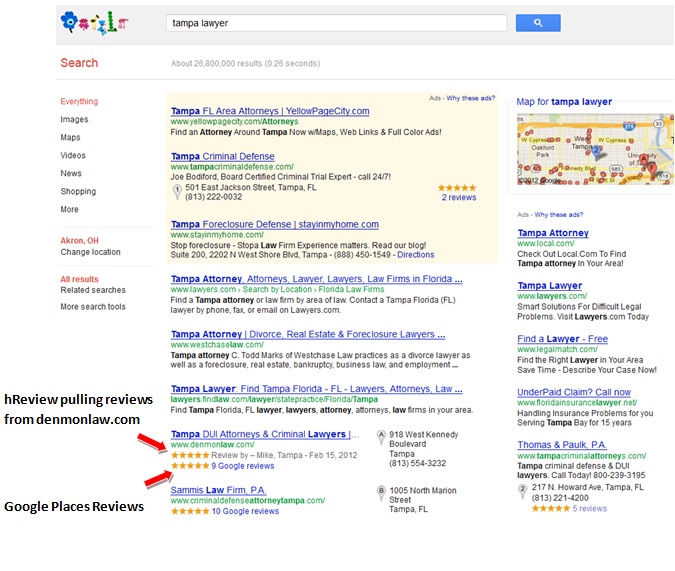has 13+ years experience in web development, ecommerce, and internet marketing. He has been actively involved in the internet marketing efforts of more then 100 websites in some of the most competitive industries online. John comes up with truly off the wall ideas, and has pioneered some completely unique marketing methods and campaigns. John is active in every single aspect of the work we do: link sourcing, website analytics, conversion optimization, PPC management, CMS, CRM, database management, hosting solutions, site optimization, social media, local search, content marketing. He is our conductor and idea man, and has a reputation of being a brutally honest straight shooter. He has been in the trenches directly and understands what motivates a site owner. His driven personality works to the client's benefit as his passion fuels his desire for your success. His aggressive approach is motivating, his intuition for internet marketing is fine tuned, and his knack for link building is unparalleled. He has been published in books, numerous international trade magazines, featured in the Wall Street Journal, sat on boards of trade associations, and has been a spokesperson for Fortune 100 corporations including MSN, Microsoft, EBay and Amazon at several internet marketing industry events. John is addicted to Peets coffee, loves travel and golf, and is a workaholic except on Sunday during Steelers games.
 It’s pretty much common knowledge: Web developers hate SEO experts. In all fairness, however, the feeling is mutual. But there are some good reasons for this culture clash.
It’s pretty much common knowledge: Web developers hate SEO experts. In all fairness, however, the feeling is mutual. But there are some good reasons for this culture clash.
“Same Thing” Sickness
One thing that SEO’s hate about web developers has to do with the way they execute or fail to carry out a very specific request.
A case in point: An SEO requests a developer to create a 301 redirect between pages. The developer does a meta-redirect or a 302 redirect citing that it’s the “same thing”.
From the developer’s perspective, it’s the same thing for the user, but from an SEO standpoint, it affects the search engine rankings.
The Death of Optimization
Developer skills and SEO techniques go hand in hand, so when if a developer fails to do their job, then it doesn’t matter what the SEO team does. Even with a copy of Google’s secret algorithm in hand, the site won’t rank if the site won’t work.
A case in point: A client implements some redesign elements. Suddenly, traffic drops by 30%.
The problem: Many of the pages don’t load like they should and the ones that do load show 500 server errors. The developer failed to spot the errors during the development process.
The result: 3 weeks of seriously diminished traffic.
The “I Know SEO” Syndrome
This is a contagious disease that developers get that can quickly spread to other developers. If you have ever heard a developer say something like I’m pretty good at SEO, it can usually be translated into I’ve read a little about SEO and therefore I pretty much know more than you do.
But wait a minute, SEO’s. You aren’t immune, either. There is a related syndrome called “I can code”.
A case in point: An SEO expert successfully builds a Word Press site and suddenly deems themselves a web developer.
The Real Problem
At the root of the culture clash between coders and SEO’s are their driving philosophies. Business classes that teach search engine optimization focus on uniqueness. After all, differentiating yourself from the competition is a good thing. On the other hand, computer science classes center on making everything the same. Each discipline takes a different approach to reaching the same result: stability and efficiency.
 Shopping around the web these days has become a frustrating affair. Not only is Google serving up obscure blogs on the first page, some of the largest players like Target seem to have forgotten that an excellent shopping experience is what turned them into a household name.
Shopping around the web these days has become a frustrating affair. Not only is Google serving up obscure blogs on the first page, some of the largest players like Target seem to have forgotten that an excellent shopping experience is what turned them into a household name.
For example, try shopping for bath towels on Target.com. Type in “Fieldcrest towels,” in Google Search and Target comes up first place in the organic listing. Notice too that Target has paid for a PPC ad for “Fieldcrest towels.”
However, once you get to the website, good luck outfitting your bathroom. The towel is supposed to be available in a choice of colors: white/black stripe, white/grey, white/brown, white/green and white/taupe stripes. Yet, only the black stripe photo is displayed for all of the examples. Moreover, the two white/black stripe towels that are pictured are different. One has two stripes and one has four. So not only is the customer unable to see the color so that they can match it to their sea foam rug, they also haven’t a clue as to what design they are buying.
As the Internet focuses on Social Media, photographs become increasingly important. Facebook, Twitter and Google+ posts share better with great photographs. Unlike video or text, photographs are immediate, beautiful and engaging. Unfortunately there are ownership issues surrounding photographs on social media that every photographer, marketing manager or business should be aware of.
The issues related to copyrights are clearly listed in the Terms of Service agreements on every social media site. Buried in these lengthy, complex agreements are terms that are designed to protect the social media site. Each agreement is a little different and they are updated and changed periodically.
On most Social Media sites when materials with intellectual property rights like photographs are posted the poster is granting a non-exclusive sub-license of the photograph to the social media site. The sub-license is free and it allows other users of the site and the social media site itself to turn around and then use or license the photo for free or for profit. The photographer (or owner of the exclusive license) retains ownership of the photograph but only in a non-excusive capacity once it is posted.
Why do these sub-licenses matter?
From a professional photographer’s perspective by posting a photo on a social media site they are basically removing the ability to ever sell the exclusive right to the photograph down the road. Should the photographer’s work ever become valuable both the social media site and any other entity that has acquired the photograph through the site can use it as they see fit for profit without owing royalties to the photographer. In the case of Google+ this license if forever, called an “irrevocable” license.
Here is the TOS for Google+
“By submitting, posting or displaying the content you give Google a perpetual, irrevocable, worldwide, royalty-free, and non-exclusive license to reproduce, adapt, modify, translate, publish, publicly perform, publicly display and distribute any Content which you submit, post or display on or through, the Services.
You agree that this license includes a right for Google to make such Content available to other companies, organizations or individuals with whom Google has relationships for the provision of syndicated services, and to use such Content in connection with the provision of those services.
You understand that Google, in performing the required technical steps to provide the Services to our users, may (a) transmit or distribute your Content over various public networks and in various media; and (b) make such changes to your Content as are necessary to conform and adapt that Content to the technical requirements of connecting networks, devices, services or media. You agree that this license shall permit Google to take these actions.”
Google+’s user agreement is the most extensive of all the social media sites in that it is irrevocable. The forever nature of the license means that under no circumstances can the poster of the photographer ever recover exclusive rights to the photograph.
News reports like this one from globalpost and businessinsider have been popping up over the last couple days reporting that Google Chrome has become the worlds most used web browser as reported by StatCounter. Immediately when I heard this I thought that there was no way this could be true so I went to check my own Google Analytics Data…
Google Analytics Browser Data on Car Rentals over the past 30 days:
Google Analytics Browser Data on Housewares for the last 30 days:
As you can see, chrome is not even close to catching up to internet explorer in any of these verticals. To make sure I wasn’t going crazy I ran some reports on Travel in Germany, The Middle East and Spain.
While watching the recent free video release from Distilled I got to see Rand Fishkin of SEOmoz’s true feelings about XML Video Sitemaps. I decided that it required a true visual representation.
 I wanted to publicly thank Bill Slawski from SEO by the Sea I recently hooked up with Bill in a Google Hang out which was hosted by and old mate of mine Dejan from DejanSEO. After listening to him talk about various SEO related topics, I knew I wanted to hear more. I fired off an email offering to take him out to lunch and he responded promptly (maybe he was just hungry?), we sorted out a day and time for me to come down to meet with him.
I wanted to publicly thank Bill Slawski from SEO by the Sea I recently hooked up with Bill in a Google Hang out which was hosted by and old mate of mine Dejan from DejanSEO. After listening to him talk about various SEO related topics, I knew I wanted to hear more. I fired off an email offering to take him out to lunch and he responded promptly (maybe he was just hungry?), we sorted out a day and time for me to come down to meet with him.
It was a pleasure to chat with an industry veteran and share some war stories. I am looking forward to learning from and working with Bill in the future. If you have the opportunity to listen to Bill speak, listen very carefully and take notes :-).
All this discussion about “Negaitve SEO” reminded me about a blog post that I wrote in 2008 on the same topic:
I have been reading and studying the term negative search engine optimization (SEO). I find it quite funny how people at Google in particular (Matt Cutts) says Google Bombing or negative SEO is difficult or nearly impossible without high jacking someone’s website. This is totally wrong, but then again he is the same guy saying you need links to get your site to rank, but don’t buy them… (If I hear that loaded answer one more time!).
Google is very smart. What they do is rely on a human being’s general perception that if something is deemed wrong or is generally unacceptable, that most will avoid it. They have been pounding down everyone’s throat that paid links are bad, if you buy links your a bad person or evil webmaster. They talk about penalties and banning websites. In the past penalties were very rare, but recently I have seen several link buyers penalized.
As soon as I see a client penalized, I see the clear path to negative SEO. Each and every time I see or hear about a website penalized for off site SEO work, I create a log of what transpired and what the effects were. Does Google think SEO’s or people involved in search engine optimization are dumb? Well we are not. I have a list of places where links are penalized, I have a list of the types and quantities of links that have been penalized, I know how long it takes and how to avoid it or how to cause it.
I am not talking about buying links for Viagra for a number one ranked website for the search term homes. But you know if the site that ranked #1for homes, ranked between 4-6 for home sales, sell homes, buy homes etc., and that these are the keywords that a top quality website can be penalized for, then you simply build just a few too many really good links. Do not be obvious, do 100% legit SEO (buying links is OK in my book) work for the target site, just do a little too much, a little to quick, and guess what they will be given a -30 or a -45, for several of the over optimized keywords. They will not be penalized for their primary keyword which would require a 100% hand removal from Google or a Hand Penalty from Google, but it is not difficult to get them hammered for their 2nd tier search words.
Needless to say, I can present Google with multiple instances of proof that this is a fact, and I can certainly repeat the results if required.
Google is crossing its fingers that the general SEO community will frown on the part of negative SEO, because of the bad Karma, but in reality what is the difference between getting your site to rank higher (therefore lowering your competitors site) or simply lowering your competitors site so your site ranks higher?
Google is really beginning to upset me with these link threats, and link penalties. If they continue this barrage on SEO companies, everyone will just do very low profile SEO for their client’s sites, and over optimize 3-4 of their competitor’s websites. When multiple SEO companies adopt this theory, Google is really screwed. They will lose nearly all control, and be left unable to properly address which sites should be rewarded and which should be penalized.
For now Google is OK, because of the bad Karma factors and the “it’s wrong to do this”, but it will only take Google penalizing 2-3 top clients before SEO companies will all decided it is so much easier, and more profitable to negative SEO their competitors.
I will say that it is NOT hard, it is NOT difficult. If a group of top SEO and link builders got together, they could probably get nearly any site penalized.”
If it’s your first time hearing about rich snippets you may want to read up at microformats.org first. In general though, rich snippets allow webmasters to influence the display of their website’s listings in search engines.
Like this:
 Rich snippets have been around since 2009, but up until recently only a few websites could actually benefit from them. Previously, Google required webmasters to submit rich snippet request forms through its webmaster tools before anything would display differently in search results. Recently though Google has removed the manual approval process for hReview and other rich snippet code. This opens up many new exciting opportunities for both webmasters and SEO professionals.
Rich snippets have been around since 2009, but up until recently only a few websites could actually benefit from them. Previously, Google required webmasters to submit rich snippet request forms through its webmaster tools before anything would display differently in search results. Recently though Google has removed the manual approval process for hReview and other rich snippet code. This opens up many new exciting opportunities for both webmasters and SEO professionals.
hReview is arguably the most important rich snippet because it can pull reviews from your website and display them as stars under your search listings. Richard Baxter from SEO Gadget noticed a 5% CTR increase to his website after implementing hReview and obtaining stars in search results. 5% is an attractive number considering it takes all of five minutes to install the code.
To get the code for your website you can try the hReview Creator tool at microformats.org or simply use a template (I didn’t have much luck with the hReview Creator tool personally). Here is an example code template I drew up for my company, Evolve Creative Group.
<div class=”hreview”>
<span>
<span>Evolve Creative Group </span>
</span>
Reviewed by <span class=”reviewer”>Susie Smith </span> on
<span>
Jan 31<span class=”value-title” title=”2012-01-31″></span>
</span>.
<span>Thank you for being a great partner and delivering a world-class website.</span>
<span>After an extensive web agency search, we selected Evolve Creative Group and couldn’t have been happier with our choice. Todd Bertsch and his team demonstrated a passion and commitment to our project from the very first phone call.</span>
Rating:
<span class=”rating”>5.0</span>
</div>
This code can be placed anywhere within the body section of your source code. Make sure to use Google’s rich snippet testing tool to ensure that everything is set-up correctly.
Review stars will undoubtedly make your website more prominent in search results, but you need to be careful with how you use them or you risk getting your website penalized (unlikely) or having the snippet disappear altogether. Google’s guidelines for the hReview rich snippet state:
Google also has a rich snippet spam report form that states, “a rich snippet promoting a travel package as an event or displaying fabricated reviews would be considered spam.”
Google’s first guideline is the most confusing for many because it’s open to so much interpretation. My company could argue that our homepage is about a specific service (web design), but would Google see it the same way? Denmonlaw.com from the example above has simply moved a review from their testimonial page onto their homepage and incorporated hReview.
Assuming the review is legitimate I don’t see any issues with this practice. Only time will tell the future of this new open-ended system, but for now, we should all be taking advantage of this incredible opportunity while it’s still available. What do you think about moving a few testimonials to the homepage to benefit from hReview?
This from Phil Leahy
I noticed last night that Google’s visible page rank had disappeared for several tools I use. I looked around a little bit but could not find any tool that was working. I think the SEO community has been looking towards this for quite some time, as people have put far too much emphasis on Google’s visible page rank to the point where an entire economy (Text Link Industry) has been developed around a websites Page Rank and the associated value you can extract from selling links.
I think the guys from Majestic SEO and SEOMoz are both quite pleased to see this change, as they both have built into their link spider the ability to score the link value of a website based upon somewhat similar characteristics to that of Google’s Page rank.
I guess we will see how this all plays out over the coming days, weeks, months or years. I think the removal of visible page rank has been long over due.